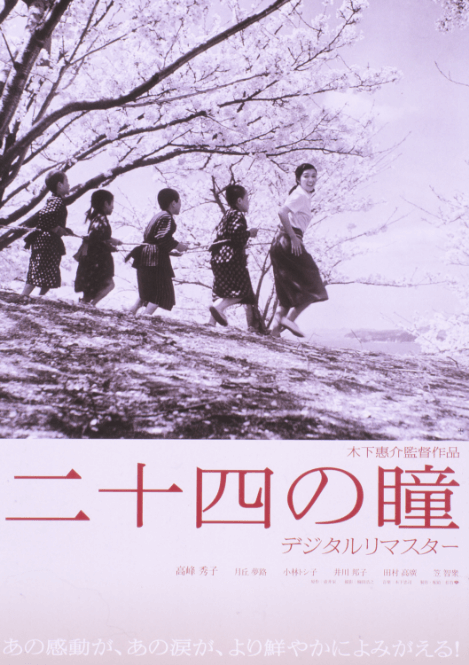
TWENTY-FOUR EYES (1954) 二十四の瞳
Classic, Drama ・156min
-
Rating
Japan : G - Unclassified All ages: mild themes of war and poverty, verbal references to death, suicide and violence T13 13+
-
Keyword
Book adaptation, Music, Shodo island, School
حكاية مؤثرة عن معلمة واثني عشر تلميذًا عاشوا في زمن الحرب. စစ်ကာလကို ဖြတ်သန်းကြုံတွေ့ ခဲ့ရသော ဆရာမတစ်ဦးနှင့် တပည့် ၁၂ ယောက်၏ ဝမ်းနည်းဖွယ်ရာ ဇာတ်လမ်းတစ်ပုဒ်။ 講述了生活在戰爭時代的教師,和12名學生的命運的動人故事。 A moving tale about a teacher and twelve students who lived through a time of war. Eine bewegende Geschichte über eine Lehrerin und zwölf Schüler, die den Krieg miterleben. Megható történet egy tanárról és tizenkét diákjáról, akik átélték a háború éveit. Cerita mengharukan tentang seorang guru dan dua belas muridnya yang hidup di masa perang. Commovente racconto di un'insegnante e dei suoi dodici alunni durante gli anni della guerra. Sebuah kisah meruntun jiwa tentang seorang guru dan 12 orang pelajarnya yang hidup di zaman perang. Uma história tocante sobre uma professora e 12 alunos que vivenciaram tempos de guerra. Una conmovedora historia sobre un maestro y doce alumnos que vivieron durante una época de guerra. เรื่องราวสุดสะเทือนใจที่บอกเล่าถึงโชคชะตาของคุณครู และเด็กนักเรียนทั้ง 12 คนที่ใช้ชีวิตผ่านยุคสงคราม Một câu chuyện cảm động về một giáo viên và mười hai học sinh sống qua thời chiến.
يحتوي على مشاهد تتضمن شرب الكحول والتدخين. ဤဇာတ်ကားတွင် အရက်နှင့်ဆေးလိပ် သောက်သုံးသည့် ပြကွက်များပါဝင်သည်။ 本片含有飲酒、吸煙的場景。 Contains scenes with alcohol consumption and smoking. Enthält Szenen, in welchen Alkohol getrunken oder geraucht wird. Alkoholfogyasztást, dohányzást tartalmazó jelenetek láthatóak a filmben. Mengandung adegan mengonsumsi alkohol dan merokok. Contiene scene di consumo di alcool e fumo. Mengandungi babak minuman keras dan merokok. Contém cenas com consumo de álcool e tabagismo. Contiene escenas de fumadores y consumo de alcohol. มีฉากการใช้บุหรี่และเครื่องดื่มแอลกอฮอล์ Có cảnh uống rượu và hút thuốc.
Available
Argentina, Australia, Brazil, Brunei, Cambodia, Egypt, Germany, Hungary, India, Indonesia, Italy, Laos, Malaysia, Mexico, Myanmar, New Zealand, Peru, Philippines, Singapore, Spain, Taiwan, Thailand, United Kingdom, Vietnam
Subtitles
Arabic, Burmese, Chinese (Simplified), Chinese (Traditional), English, German, Hungarian, Indonesian, Italian, Malay, Portuguese (Brazil), Spanish, Thai, Vietnamese

【For those watching on Android devices】
You may not be able to watch on Google Chrome. In that case, restart the browser and try again. If you are still unable to watch, try a different browser.
If you are still unable to watch after restarting your browser, please download the app from Google Play.
See here for how to watch via the app.
You cannot register for a shift72 account from the app. Also, you cannot reserve TV dramas on the app, and you can only watch those that you have already reserved on My Library. Before using the app, register for a shift72 account on your PC or smartphone browser and reserve the TV drama you wish to watch. A Wi-Fi connection is required to watch them on the app.
【Problèmes de visionnage sur un appareil Android】
Si vous n'êtes pas en mesure de lire des vidéos sur Google Chrome, redémarrez le navigateur et réessayez. Si vous ne parvenez toujours pas à regarder, essayez un autre navigateur.
【إشعار هام】
إذا واجهت مشكلة في عرض الأفلام باستخدام متصفح جوجل كروم على هاتف أندرويد، برجاء استخدام متصفح آخر
【致使用安卓设备收看的用户】
内容作品会出现除使用Google Chrome浏览器以外无法播放的情况,如您无法收看,请重启浏览器,即可收看。若重启仍无法播放,请您尝试使用其他浏览器。
If you are still unable to watch after restarting your browser, please download the app from Google Play.
See here for how to watch via the app.
You cannot register for a shift72 account from the app. Also, you cannot reserve TV dramas on the app, and you can only watch those that you have already reserved on My Library. Before using the app, register for a shift72 account on your PC or smartphone browser and reserve the TV drama you wish to watch. A Wi-Fi connection is required to watch them on the app.
【致使用安卓設備收看的用戶】
內容作品會出現除使用Google Chrome流覽器以外無法播放的情況,如您無法收看,請重啟流覽器,即可收看。若重啟仍無法播放,請您嘗試使用其他流覽器。
If you are still unable to watch after restarting your browser, please download the app from Google Play.
See here for how to watch via the app.
You cannot register for a shift72 account from the app. Also, you cannot reserve TV dramas on the app, and you can only watch those that you have already reserved on My Library. Before using the app, register for a shift72 account on your PC or smartphone browser and reserve the TV drama you wish to watch. A Wi-Fi connection is required to watch them on the app.
【Azoknak, akik Android készüléken tekintik meg a filmeket】
Előfordulhat, hogy Google Chrome nem játsza le filmeket. Ez esetben, kérjük próbálkozzanak a böngésző újraindításával. Ha ezután sem tudják megtekinteni a filmeket, kérjük váltsanak más böngészőre.
Ha a böngésző újraindítása után sem lesznek elérhetőek a sorozatok, kérjük töltse le az applikációt a Google Play Áruházból.
További részletek ide kattintva.
Az applikáción keresztül nem lehet Shift72 fiókot regisztrálni. Továbbá, nem lehet TV sorozatot előjegyezni az applikációban, és csak azokat lehet megtekinteni, amelyeket korábban elmentett a My Library („Az én könyvtáram”) oldalon. Az applikáció használata előtt, kérjük regisztráljon egy Shift72 fiókot a számítógépe vagy a mobiltelefonja böngészőjében és jegyezze elő azt a sorozatot, amelyet megkíván nézni. Az applikáción keresztüli sorozatnézéshez WI-FI kapcsolat szükséges.
【Para quem utiliza dispositivos com Android, para assistir a programação】
Pode acontecer de não conseguir assistir os conteúdos ao usar o Google Chrome. Nesse caso, reinicie o navegador. Se ainda assim não conseguir assitir, utilize um outro navegador.
Se você não conseguir assistir o conteúdo, mesmo reiniciando o navegador, faça o download do aplicativo do Google Play.
Veja como assistir através do aplicativo.
Você não poderá cadastrar a conta do shift72 no aplicativo. E também não poderá reservar os episódios no aplicativo, podendo assistir somente os episódios reservados em My Library. Antes de utilizar o aplicativo, reserve os episódios que gostaria de assistir, na conta do shift72, usando um navegador no seu computador ou smartphone. Uma conexão Wi-Fi é necessária para assistir os episódios no aplicativo.
【Para quienes ven el JFFO 2024 en dispositivos Android.】
Es posible que no puedan verlo en Google Chrome. Si ese es el caso, reinicien el navegador e intenten de nuevo. Si continúan sin poder verlo, intenten con un navegador diferente.
Si después de reiniciar el navegador sigue sin poder visualizar el contenido del JFFO2024, descargue la aplicación de Google Play.
Vea aquí las indicaciones para ver a través de la aplicación.
No se puede registrar para una cuenta shift72 desde la aplicación. Además, no se pueden reservar series en la aplicación, y sólo se pueden ver las que ya han sido reservadas en "Mi Biblioteca". Antes de utilizar la aplicación, debe de regístrarse para obtener una cuenta shift72 en el navegador de una PC o smartphone y reservar la serie que desee ver. Se necesita una conexión Wi-Fi para verlas en la aplicación.
【Untuk anda yang ingin menonton melalui peranti Android】
Anda mungkin tidak akan berjaya melakukannya melalui Google Chrome. Sekiranya demikian, sila tutup dan buka kembali pelayar anda. Jika masih tidak berjaya, sila gunakan pelayar yang berbeza.
Sekiranya anda masih tidak dapat menonton setelah mematikan dan menghidupkan semula pelayar, sila muat turun aplikasi daripada Google Play.
Klik di sini untuk melihat cara-cara menonton melalui aplikasi.
Anda tidak boleh mendaftar akaun shift72 daripada aplikasi. Anda juga tidak boleh menyimpan drama TV di dalam aplikasi. Anda hanya boleh menonton apa yang telah anda simpan di dalam My Library. Sebelum menggunakan aplikasi, daftarlah akaun shift72 di pelayar komputer mahupun telefon pintar, dan simpanlah drama-drama yang ingin anda tonton. Jaringan Wi-Fi amatlah diperlukan ketika anda ingin menontonnya di aplikasi.
【Android ဖုန်းမှကြည့်ရှုသောသူများအတွက် 】
Google chromeတွင်ကြည့်ရှု၍မရပါက ဦးစွာRestart ချကြည့်ပါ။ Restart ချကြည့်ပြီးသော်လည်းမရသေးလျှင် Google Chrome မဟုတ်သောအခြားBrowserအားသုံးပေးပါ။
သင်၏ ဘရောက်ဆာကို Restart ချပြီးသော်လည်း ကြည့်ရှု၍မရသေးလျှင် ကျေးဇူးပြုပြီး Google Play မှတဆင့် App ကို Download ပြုလုပ်ရယူပါ။
App မှတဆင့်ကြည့်ရှုရန်အတွက် ဒီနေရာကိုနှိပ်ပါ။
App မှတဆင့် shift72 အကောင့်ကို စာရင်းပေးပြုလုပ်၍မရပါ။ App ပေါ်တွင် TV ဒရာမာစီးရီးများကို သိမ်းထား၍ မရနိုင်သလို၊ My Library ထဲတွင် သိမ်းဆည်းထားပြီးသားတို့ကိုသာ ကြည့်ရှုနိုင်မည်ဖြစ်ပါသည်။ App ကိုအသုံးမပြုမီ သင့် PC ကွန်ပြူတာ သို့ စမတ်ဖုန်းမှတဆင့် shift72 အကောင့်ကိုဖွင့်လှစ်စာရင်းသွင်းပြီး မိမိကြည့်ရှုလိုသည့် TV ဒရာမာစီးရီးကို မှတ်သားသိမ်းဆည်း(Reserve)ထားပါ။ App ပေါ်တွင် ကြည့်ရှုရန်အတွက် ဝိုင်ဖိုင်အင်တာနက် လိုအပ်ပါသည်။
【Per coloro che accedono con dispositivi Android.】
Potrebbe capitare di non riuscire ad accedere alla visione con Google Chrome. In tal caso riavviare il browser e riprovare. Se ancora si riscontra l'impossibilità di accesso, provare con un browser diverso.
Se dopo aver riavviato il browser avete ancora problemi di visualizzazione, scaricate l'app da Google Play.
Per sapere come visionare tramite l'app, guardate qui.
Non è possibile registrare un account shift72 dall'app. Inoltre, non è possibile prenotare i film sull'app e si possono guardare solo quelli già prenotati su My Library. Prima di usare l'app, registrate un account shift72 sul browser del vostro PC o smartphone e prenotate le serie TV preferita. Per guardarla sull'app è necessaria una connessione Wi-Fi.
【Untuk pengguna Android】
Ada kemungkinan Anda tidak dapat menonton pada Google Chrome. Jika demikian, buka ulang peramban dan coba kembali. Jika gagal, mohon gunakan peramban yang berbeda.
Silakan unduh aplikasi dari Google Play apabila Anda tidak dapat menonton melalui peramban.
Lihat di sini untuk cara menonton via aplikasi
Anda tidak bisa membuat akun shift72 dan memilih serial drama TV melalui aplikasi. Sebelum menggunakan aplikasi, silakan buat akun shift72 di peramban PC atau ponsel Anda, dan pilih serial drama TV yang ingin Anda tonton. Serial drama TV yang telah Anda pilih akan tersimpan di My Library. Anda hanya bisa menonton serial drama TV yang telah tersimpan di My Library. Koneksi Wi-Fi diperlukan untuk menonton via aplikasi.
【สำหรับผู้ที่รับชมบนอุปกรณ์ แอนดรอยด์ (Android)】
ท่านอาจไม่สามารถรับชมบน กูเกิลโครม(Google Chrome) ได้ ในกรณีนั้น ให้รีสตาร์ทบราวเซอร์ของท่าน และลองอีกครั้ง หากท่านยังไม่สามารถรับชมได้ ให้ลองเปลี่ยนบราวเซอร์ที่ใช้
หากคุณยังไม่สามารถรับชมหลังจากรีสตาร์ทหน้าเว็บไซต์เเล้ว กรุณาดาวน์โหลดเเอปพลิ เคชันจาก Google Play
ดูวิธีการรับชมผ่านแอปพลิเคชันได้ที่นี้
คุณไม่สามารถลงทะเบียนบัญชี Shift72 จากเเอปพลิเคชันได้ และไม่สามารถเซฟซีรีส์ผ่านเเอปพลิเคชันเช่นกัน โดยคุณสามารถรับชมซีรีส์ที่เซฟไว้แล้วใน My Library เท่านั้น ก่อนเริ่มใช้งาน ให้ลงทะเบียนบัญชีผ่านหน้าเบราวเซอร์บนคอมพิวเตอร์/สมาร์ตโฟนของคุณ เเละเซฟเรื่องที่คุณต้องการรับชม โดยจำเป็นต้องเชื่อมต่อ Wi-Fi สำหรับการรับชมผ่านเเอปพลิเคชัน
【Đối với thiết bị Android】
Bạn có thể không xem được phim trên trình duyệt Google Chrome. Trong trường hợp này, hãy thử khởi động lại trình duyệt xem tình trạng có được cải thiện. Nếu vẫn không xem được phim, bạn hãy thử với trình duyệt khác.
Nếu bạn vẫn không thể xem được phim dù đã khởi động lại trình duyệt của mình, vui lòng tải ứng dụng Shift72 để xem phim từ Google Play.
Xem hướng dẫn cách xem phim trên ứng dụng tại đây.
Bạn không thể đăng ký mở tài khoản ngay trực tiếp trên ứng dụng Shift72. Bạn cũng không thể đặt trước các bộ phim truyền hình trên ứng dụng mà chỉ có thể xem những bộ phim đã được lưu lại vào mục My Library (Thư viện của tôi). Chính vì thế, trước khi sử dụng ứng dụng, hãy mở trình duyệt trên máy tính hoặc điện thoại thông minh của bạn để đăng ký tài khoản shift72 và đặt trước bộ phim truyền hình mà bạn muốn xem. Cần có kết nối Wi-Fi để xem phim trên ứng dụng.
【Für Benutzer von Android-Geräten】
Möglicherweise können Sie die Filme mit Google Chrome nicht abspielen. Starten Sie in diesem Fall den Browser neu und versuchen Sie es erneut. Wenn Sie immer noch nicht schauen können, versuchen Sie es mit einem anderen Browser.
Wenn Sie nach dem Neustart des Browsers weiterhin Probleme mit dem Anschauen der Videos haben, laden Sie bitte die folgende App aus dem Google Play Store herunter.
Klicken Sie hier für eine Anleitung zum Streamen über die App
Sie können über die App keinen shift72-Account erstellen. Ebenso können Sie keine TV-Serien über die App vormerken und nur die Serien anschauen, die Sie bereits in Ihre "My Library" hinzugefügt haben. Bevor Sie die App verwenden, erstellen Sie bitte über Ihren PC/Smartphone-Brower einen Account und merken Sie die Serien vor, die Sie in der App streamen möchten. Eine W-LAN-Verbindung wird für das Streamen benötigt.
PHOTO GALLERY
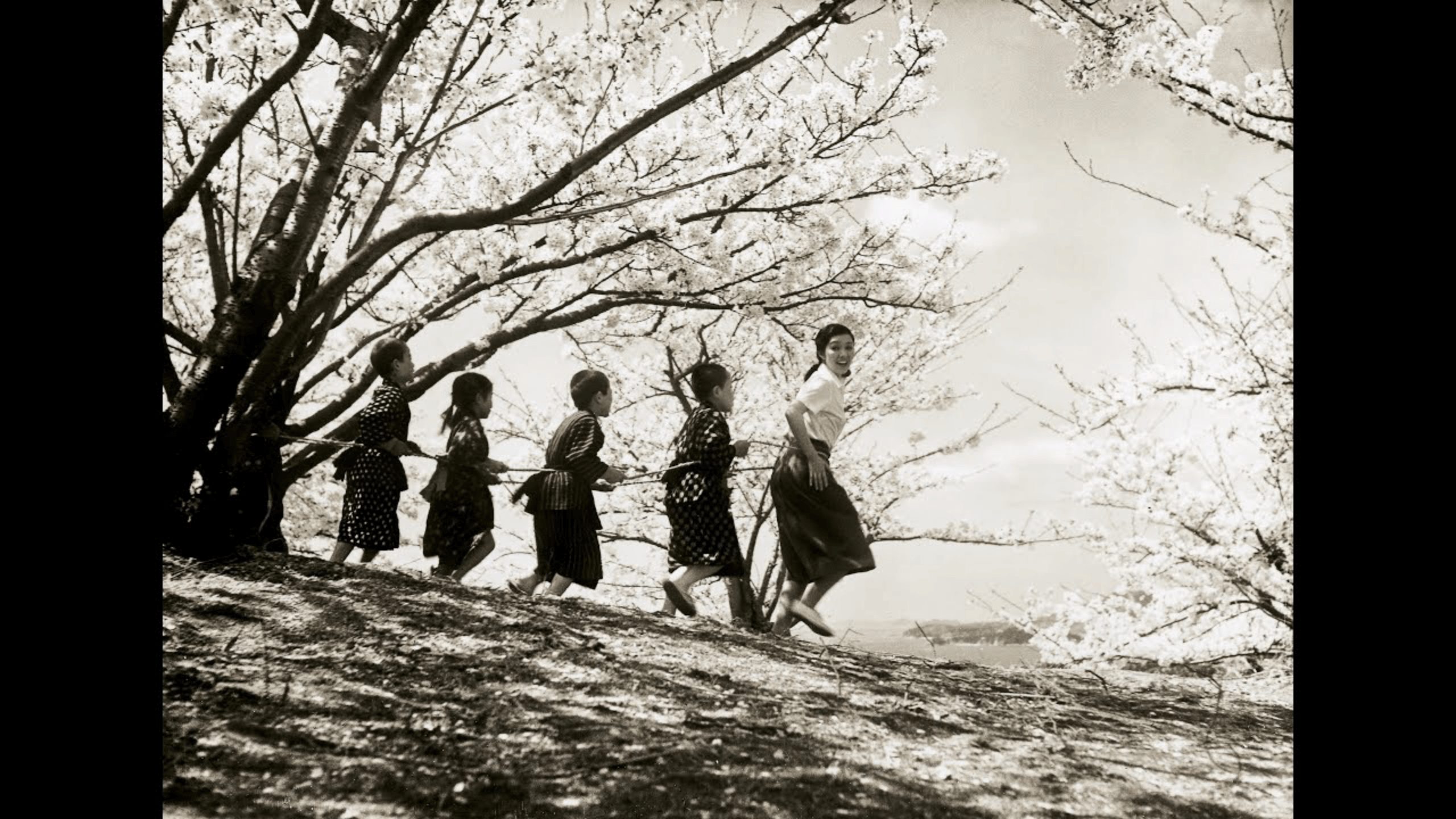
Watch Trailer
INFO
| CAST | TAKAMINE Hideko, TSUKIOKA Yumeji, RYU Chishu |
|---|---|
| DIRECTOR | KINOSHITA Keisuke |
| SCREENPLAY | KINOSHITA Keisuke |
| ORIGINAL STORY | TSUBOI Sakae |
INTRODUCTION
فيلم كلاسيكي يتتبع مصير معلمة تعمل في جزيرة صغيرة وطلابها الاثني عشر الذين يعيشون في زمن الحرب. عند عرضه، أبكى الفيلم الناس في جميع أنحاء اليابان.
ကျွန်းငယ်လေးတစ်ခုတွင် တာဝန်ထမ်းဆောင်ရန် ကြမ္မာဖန်လာသော ဆရာမတစ်ဦးနှင့် သူ၏ တပည့် ၁၂ ယောက်တို့ စစ်ဖြစ်နေချိန်တွင် တွေ့ကြုံဖြတ်သန်းရသည်တို့ကို ရိုက်ကူးထားသည့် ဂန္တဝင်ရုပ်ရှင်ကားဖြစ်သည်။ စတင်ထုတ်လွှင့်ချိန်မှာပင် ကြည့်ရှုသူ ဂျပန်ပြည်သူတိုင်းကို မျက်ရည်လည်စေခဲ့သည့် ဇာတ်ကားဖြစ်သည်။
影片描繪了到一座小島任教的女老師,和她的12名學生的命運,遭戰爭作弄的故事。是一部曾使全日本動容的傳統電影。
A classic film that follows the fate of a female teacher who works on a small island and her twelve students who live through a time of war.
Upon its release, the film moved people all over Japan to tears.
Ein Filmklassiker, der das Schicksal einer Lehrerin, die auf einer kleinen Insel arbeitet, und ihrer zwölf Schüler, die den Krieg durchleben, beschreibt. Bei seinem Erscheinen rührte der Film die Menschen in ganz Japan zu Tränen.
Klasszikus film, amely egy kis szigeten dolgozó tanárnő és tizenkét diákja sorsát követi nyomon, akik egy háborús időszakot élnek át.
A film egész Japánban könnyekig hatotta az embereket.
Film klasik yang berkisah tentang seorang guru perempuan yang bekerja di sebuah pulau kecil bersama dua belas muridnya yang hidup pada masa perang.
Saat dirilis, film ini membuat banyak orang di seluruh Jepang meneteskan air mata.
Un film classico ambientato negli anni della guerra, che racconta il destino di un'insegnante in servizio in una piccola isola e dei suoi dodici studenti. Uscito in sala nel 1954, il film commosse fino alle lacrime il pubblico di tutto il Giappone.
Sebuah filem klasik berkisar takdir seorang guru perempuan yang bekerja di sebuah pulau kecil serta 12 orang pelajarnya yang hidup di zaman perang. Saat ditayangkan, seluruh Jepun berendam air mata.
Um filme clássico que acompanha o destino de uma professora e seus 12 alunos em uma pequena ilha durante tempos de guerra.
Em seu lançamento, o filme emocionou todo o Japão.
Una película clásica que sigue el destino de una profesora que trabaja en una pequeña isla y sus doce alumnos que viven en una época de guerra.
Tras su estreno, la película conmovió hasta las lágrimas a la gente de todo Japón.
ภาพยนตร์คลาสสิกที่บอกเล่าถึงชีวิตของคุณครู และเด็กนักเรียนทั้ง 12 คน ที่ใช้ชีวิตผ่านยุคสงครามบนเกาะเล็ก ๆ แห่งหนึ่ง สร้างน้ำตาให้กับผู้คนมาแล้วทั่วทั้งญี่ปุ่น
Một bộ phim kinh điển kể về số phận của một nữ giáo viên làm việc trên một hòn đảo nhỏ và 12 học sinh của cô sống qua thời chiến tranh. Sau khi phát hành, bộ phim đã khiến người dân khắp Nhật Bản rơi nước mắt.
في عام 1928، تصل المعلمة الآنسة أويشي (تاكامينيه هيديكو) إلى مدرسة ابتدائية في جزيرة شودوشيما في بحر سيتو الداخلي في غرب اليابان. تثير الآنسة أويشي التي ترتدي ملابس عصرية وتركب دراجتها للذهاب إلى العمل، الشكوك بين الكبار في الجزيرة، لكنها تحب طلابها الاثني عشر الصغار حبًا كبيرًا، ويحبونها في المقابل حتى وهم يقومون بمقالب فيها. ومع ذلك، لا تدوم أيام النعيم طويلًا حيث تتجه اليابان ببطء إلى الحرب. تصبح إحدى الفتيات فقيرة للغاية لدرجة أنها لا تستطيع الاستمرار في الذهاب إلى المدرسة، ويريد أحد الفتيان أن يصبح جنديًا بينما يتعمق وجع قلب السيدة أويشي.
فيلم كلاسيكي مناهض للحرب عن حياة المواطنين اليابانيين العاديين الذين تأثروا بالحرب كما يظهر من خلال التفاعلات طويلة الأمد بين المعلمة وطلابها. لا تزال العديد من الأغاني الشعبية التي تظهر في الفيلم محبوبة ومغناة في اليابان حتى اليوم. ظهرت "تاكاميني هيديكو" في العديد من الأفلام ذات الأهمية التاريخية وقد أُشيد بها بوصفها واحدة من أكثر الممثلات العظيمات في السينما اليابانية. كما أن المخرج كينوشيتا كيسوكي هو أحد أكثر المخرجين اليابانيين احترامًا إلى جانب مخرجين من أمثال أكيرا كوروساوا وياسوجيرو أوزو.
၁၉၂၈ ခုနှစ်တွင် ဆရာမ အိုအိရှိ (တခမိနဲ ဟိဒဲကို)သည် ဂျပန်နိုင်ငံအနောက်ဘက်ရှိ ဆဲတိုကုန်းတွင်းပင်လယ်အနီး ရှိဒိုရှီးမားကျွန်းသို့ မူလတန်းဆရာမအဖြစ် တာဝန်ထမ်းဆောင်ရန် ရောက်ရှိလာသည်။ ခေတ်မီအနောက်တိုင်း အဝတ်အစား များဝတ်ကာ ကျောင်းသို့ စက်ဘီးစီးလာသည့် အိုအိရှိကို ကျွန်းသူကျွန်းသားတို့က မသင်္ကာဖွယ် လူတစ်ဦးအဖြစ် ဆက်ဆံကြသော်လည်း အိုအိရှိသည် သူမ၏ တပည့် ၁၂ ယောက်ကို အလွန်ချစ်သည်။ အစက ကျောင်းသားများက ဆရာမကို စနောက်ကြသော်လည်း တဖြည်းဖြည်း ကျောင်းဆရာမလေးကို သဘောကျခင်တွယ်လာကြသည်။ သို့သော် ဂျပန်သည် စစ်ဖြစ်ရန် နီးကပ်လာသဖြင့် သူတို့ပျော်ရသည့်နေ့များမှာ မကြာခဲ့ပေ။ ဆင်းရဲသဖြင့် ကျောင်းဆက်မတတ်နိုင်တော့သည့် ကျောင်းသူတစ်ဦးနှင့် စစ်သားဖြစ်ချင်သည့် ကျောင်းသားတစ်ယောက်ကြောင့် အိုအိရှိမှာ စိတ်သောကရောက်ခဲ့ရသည်။
ကာလရှည်ကြာအောင် ဆရာမနှင့် တပည့်များ၏ အပြန်အလှန်ဆက်ဆံမှုများမှတစ်ဆင့် ဂျပန်အရပ်သူ အရပ်သားများ၏ စစ်ဘေးဒဏ်သင့်ဘဝများကို ရိုက်ကူးထားသည့် စစ်ဆန့်ကျင်ရေး ဂန္တဝင်ရုပ်ရှင်ကားဖြစ်သည်။ ရုပ်ရှင်တွင် ပါရှိသည့် ကျေးလက်တေးသီချင်းများကို ယနေ့ခေတ်ဂျပန်တွင် မြတ်နိုးလွမ်းဆွတ်မှုဖြင့် သီဆိုကြဆဲဖြစ်သည်။ တခမိနဲ ဟိုဒဲကိုသည် သမိုင်းကြောင်းအရ အရေးပါသော ရုပ်ရှင်များတွင် ပါဝင်သရုပ်ဆောင်ခဲ့ပြီး ဂျပန်ရုပ်ရှင် လောက၏ ထိပ်တန်းမင်းသမီးအဖြစ် ချီးမြှင့်ခြင်းခံခဲ့ရသည်။ ဒါရိုက်တာ ခိနိုရှိတာ ခဲဆုကဲသည် အခိရာ ခုရိုစာဝါ၊ ယဆုဂျိရို အိုဇုကဲ့သို့ နာမည်ကျော် ဂျပန်ရုပ်ရှင်ဖန်တီးသူ ဒါရိုက်တာများနှင့်ထပ်တူ လေးစားရသည့် ဒါရိုက်တာတစ်ယောက်ဖြစ်သည်။
1928年,大石老師(高峰秀子飾)到位於日本西部瀨戶內海的小豆島小學執教。騎著自行車通勤、穿著時髦衣服的大石老師,雖然遭到村子裏成年人們的鄙夷,但卻深受12名學生的愛戴,學生們時常對老師惡作劇,也會對她撒嬌。然而此時的日本正向著戰爭節奏進發,留給人們享受幸福的時間不多了。學校不僅有因貧窮而不得不輟學的女孩子,還有一心想去參軍打仗的男孩子。大石老師內心倍感悲痛。
通過師生間日常的交流,描繪出了因戰爭而逐漸脫軌的日本國民的命運與心境。本片作為戰後日本的反戰代表作之一而被記入日本電影史冊。影片中使用的諸多插曲,是如今也被日本國民喜愛傳唱的日本童謠。高峰秀子小姐出演了日本電影史上諸多重要的作品,是傳說級別的日本最偉大的演員之一。木下惠介導演也是與黑澤明導演、小津安二郎導演齊名的,代表著日本電影的著名藝術家。
In 1928, a teacher, Ms. Oishi (TAKAMINE Hideko) arrives at an elementary school on Shodoshima Island in the Seto Inland Sea in western Japan. Ms. Oishi, who wears modern clothes and rides her bicycle to work, raises suspicion amongst the adults of the island, but she loves her twelve young students very much, and they grow to love her in return even as they pull pranks on her. However, the days of bliss do not last long as Japan slowly heads to war. One girl becomes too poor to keep attending school while one boy wants to become a soldier as Ms. Oishi’s heartache deepens.
A classic anti-war film about the lives of ordinary Japanese citizens who were affected by war as seen through the long-term interactions between a teacher and her students. Many of the folk songs that appear in the film are still loved and sung in Japan today. TAKAMINE Hideko has appeared in many films of historical significance and has been praised as one of the most legendary actresses in Japanese cinema. The director, KINOSHITA Keisuke is also one of Japan’s most revered filmmakers alongside the likes of KUROSAWA Akira and OZU Yasujiro.
Im Jahr 1928 kommt die Lehrerin Frau Oishi (TAKAMINE Hideko) an eine Grundschule auf der Insel Shodoshima am Seto-Binnenmeer im Westen Japans. Frau Oishi, die moderne Kleidung trägt und mit dem Fahrrad zur Arbeit fährt, erregt das Misstrauen der Erwachsenen auf der Insel, aber sie liebt ihre zwölf jungen Schüler sehr, und diese lieben sie im Gegenzug, auch wenn sie ihr Streiche spielen. Doch die glücklichen Tage währen nicht lange, denn Japan steuert langsam auf den Krieg zu. Ein Mädchen wird zu arm, um weiter zur Schule zu gehen, und ein Junge will Soldat werden, während Frau Oishis Herzschmerz immer größer wird.
Ein klassischer Anti-Kriegs-Film über das Leben gewöhnlicher japanischer Bürger, die vom Krieg betroffen sind, gesehen durch die langfristigen Interaktionen zwischen einer Lehrerin und ihren Schülern. Viele der Volkslieder, die im Film vorkommen, werden in Japan auch heute noch gerne gesungen. TAKAMINE Hideko hat in zahlreichen Filmen von historischer Bedeutung mitgewirkt und wurde als eine der legendärsten Schauspielerinnen des japanischen Kinos gepriesen. Der Regisseur KINOSHITA Keisuke ist neben KUROSAWA Akira und OZU Yasujiro einer der meistverehrten Filmemacher Japans.
1928-ban egy tanárnő, Óisi (Takamine Hideko) egy általános iskolába kerül Japán nyugati részén, a Szeto szigetén található Sodosima-szigetre. A modern ruhákat viselő és munkába biciklivel járó Oishi kisasszony gyanút kelt a sziget felnőttjei körében, de nagyon szereti tizenkét fiatal diákját, akik viszontszeretik őt, még akkor is, amikor csínyeket űznek vele. A boldogság napjai azonban nem tartanak sokáig, mivel Japán lassan háború felé tart. Az egyik lány családja túl szegény lesz ahhoz, hogy tovább járjon iskolába, míg egy fiú katona akar lenni, mindeközben Óisi kisasszony szívfájdalma is egyre mélyül.
Klasszikus háborúellenes film a háború által érintett hétköznapi japán polgárok életéről, egy tanárnő és diákjai hosszú távú interakcióin keresztül. A filmben megjelenő népdalok közül sokakat ma is szeretnek és énekelnek Japánban. Takamine Hideko számos történelmi jelentőségű filmben szerepelt, és a japán filmművészet egyik leglegendásabb színésznőjeként méltatják. A rendező, Kinosita Keiszuke szintén Japán egyik legelismertebb filmrendezője, olyanok mellett említik, mint Kuroszava Akira és Ozu Jasudzsiró.
Pada tahun 1928, seorang guru, Oishi (TAKAMINE Hideko) tiba di sebuah sekolah dasar di Pulau Shodoshima di Laut Pedalaman Seto, Jepang bagian barat. Oishi, yang mengenakan pakaian modern dan mengendarai sepeda ke tempat kerja, menimbulkan kecurigaan di antara orang dewasa di pulau itu, tetapi ia sangat mencintai kedua belas muridnya yang masih kecil, dan akhirnya mereka juga mencintainya meskipun suka menjahilinya.
Namun, hari-hari penuh kebahagian itu tidak berlangsung lama karena Jepang perlahan memasuki perang. Seorang anak perempuan semakin kesulitan biaya untuk melanjutkan sekolah dan seorang anak laki-laki ingin menjadi tentara selagi Oishi merasakan kesedihan yang semakin mendalam.
Sebuah film klasik anti-perang tentang kehidupan warga Jepang biasa yang terkena dampak perang dilihat melalui interaksi jangka panjang antara seorang guru dan murid-muridnya. Sebagian besar lagu rakyat yang muncul dalam film ini masih disukai dan dinyanyikan di Jepang hingga saat ini.
TAKAMINE Hideko banyak bermain dalam film yang memiliki nilai sejarah dan dipuji sebagai salah satu aktris paling legendaris dalam perfilman Jepang. Sang sutradara, KINOSHITA Keisuke juga merupakan salah satu sutradara yang paling dihormati di Jepang, bersama dengan orang-orang seperti KUROSAWA Akira dan OZU Yasujiro.
Nel 1928, la maestra Oishi (TAKAMINE Hideko), arriva in una scuola elementare sull'isola di Shodoshima, nel mare interno di Seto, nel Giappone occidentale. Diversamente dagli abitanti del villaggio, indossa abiti moderni e si reca al lavoro in bicicletta, destando sospetti tra gli adulti dell'isola, ma ama molto i suoi dodici giovani allievi, che la ricambiano, seppure non mancano di farle qualche scherzo. Tuttavia, i giorni di felicità non durano a lungo, perché il Giappone si avvia lentamente verso la guerra. Una ragazza diviene troppo povera per continuare a frequentare la scuola, e un allievo ha deciso di arruolarsi: il dolore della maestra Oishi si fa sempre più profondo.
Latore di un chiaro messaggio contro la guerra, questo film classico racconta le vite ordinarie di cittadini giapponesi colpiti dalla guerra, viste attraverso le interazioni a lungo termine tra un'insegnante e i suoi studenti. Molte delle canzoni popolari che compaiono nel film sono ancora oggi amate e cantate in Giappone. TAKAMINE Hideko figura in molti film di importanza storica ed è annoverata tra le attrici leggendarie del cinema giapponese. Anche il regista, KINOSHITA Keisuke, è uno dei registi giapponesi più apprezzati insieme a KUROSAWA Akira e OZU Yasujiro.
Pada tahun 1928, seorang guru, Ms. Oishi (TAKAMINE Hideko) tiba di sebuahh sekolah rendah di Pulau Shodoshima, di Seto Onland Sea yang bertempat di barat Jepun. Ms. Oishi, yang mengenakan pakaian moden dan berkayuh basikal untuk ke tempat kerja, telah menimbulkan syak wasangka antara masyarakat dewasa di pulau itu, namun dia amat menyintai pelajar-pelajarnya yang berusia 12 tahun itu, dan mereka pun turut menyintainya, walau selalu mengusiknya. Namun, hari-hari yang membahagiakan tidaklah berkekalan apabila Jepun mulai terbabit dalam peperangan. Seorang pelajar perempuan terlalu miskin untuk hadir ke sekolah, manakala seorang pelajar lelaki pula ingin menjadi perajurit. Ms. Oishi bertambah galau.
Inilah sebuah filem klasik anti-perang tentang kehidupan rakyat biasa Jepun yang menanggung bahana perang, melalui kaca mata pertalian yang panjang antara seorang guru dan anak muridnya. Banyak sekali lagu-lagu rakyat yang diperdengarkan di dalam filem ini, yang mana lagu-lagu sebegini masih lagi diminati dan dinyanyikan di Jepun sehingga ke hari ini. TAKAMINE Hideko telah muncul dalam begitu banyak filem yang mempunyai nilai sejarah, dan telah mendapat pujian sebagai antara salah seorang aktres lagenda dalam sinema Jepun. Sutradara, KINOSHITA Keisuke juga digelar antara pembikin filem yang paling dihormati, berdampingan dengan KUROSAWA Akira dan OZU Yasujiro.
Em 1928, uma professora, a srta. Oishi (Hideko TAKAMINE) chega a uma escola de ensino fundamental na Ilha de Shodoshima, no Mar Interior de Seto, no oeste do Japão. A srta. Oishi, usando roupas modernas e indo ao trabalho de bicicleta, gera suspeitas entre os adultos da ilha, mas ela ama muito seus 12 jovens alunos, que passam a amá-la também, ainda que preguem peças na professora. Mas sua felicidade não dura muito tempo, pois o Japão entra em guerra. Uma menina fica pobre demais para continuar indo à escola, e um menino quer ser soldado, o que pesa no coração da srta. Oishi.
É um clássico filme antiguerra em que, através das interações entre a professora e seus alunos, vemos como as vidas dos cidadãos japoneses comuns são afetadas pela guerra ao longo do tempo. Muitas das canções tradicionais utilizadas no filme ainda são amadas e cantadas no Japão de hoje. Hideko TAKAMINE, que atuou em muitos filmes de importância histórica, é considerada uma das atrizes mais lendárias do cinema japonês. O diretor, Keisuke KINOSHITA, também é um dos cineastas mais reverenciados do Japão, assim como Akira KUROSAWA e Yasujiro OZU.
En 1928, una maestra, la Sra. Oishi (Hideko TAKAMINE), llega a una escuela primaria en la isla Shodoshima en el Mar Interior de Seto, en el oeste de Japón. La Sra. Oishi, que viste ropa moderna y va en bicicleta al trabajo, levanta sospechas entre los adultos de la isla, pero ama mucho a sus doce jóvenes estudiantes, y ellos llegan a amarla también, incluso cuando le hacen bromas. Sin embargo, los días de felicidad no duran mucho mientras Japón se dirige lentamente a la guerra. Una niña se vuelve demasiado pobre para seguir asistiendo a la escuela, mientras que un niño quiere convertirse en soldado y mientras el dolor de la Sra. Oishi se profundiza.
Una película clásica en contra de la guerra que trata sobre las vidas de los ciudadanos japoneses comunes y corrientes que se vieron afectados por el conflicto, vista a través de las interacciones a largo plazo entre una maestra y sus alumnos. Muchas de las canciones populares que aparecen en la película todavía son amadas y cantadas en el Japón actual. Hideko TAKAMINE ha aparecido en muchas películas de importancia histórica y ha sido elogiada como una de las actrices más legendarias del cine japonés. El director, Keisuke KINOSHITA, es también uno de los cineastas más venerados de Japón junto con Akira KUROSAWA y Yasujiro OZU.
ปี 1928 ครูโออิชิ ( ฮิเดโกะ ทาคามิเนะ) ได้ถูกมอบหมายให้มาประจำที่โรงเรียนชั้นประถมศึกษาบนเกาะโชโดะในทะเลเซโตะ ภาคตะวันตกของญี่ปุ่น แม้ว่าพวกผู้ใหญ่ในหมู่บ้านต่างพากันขมวดคิ้วให้กับการกระทำของครูโออิชิอย่างการปั่นจักรยานไปโรงเรียน หรือการสวมเสื้อผ้าแบบสมัยใหม่ แต่ครูโออิชิก็รักเด็กนักเรียนทั้ง 12 คนอย่างมาก แม้ว่าพวกเด็ก ๆ จะกลั่นแกล้งเธอแต่ไม่นานพวกเขาก็รักเธอเช่นกัน ทว่าประเทศญี่ปุ่นนั้นค่อย ๆ มุ่งหน้าเข้าสู่สงคราม ช่วงเวลาแห่งความสุขนั้นไม่ยั่งยืน เด็กนักเรียนหญิงบางคนยากจนเกินกว่าจะเรียนต่อได้ ส่วนเด็กนักเรียนชายก็ต่างมีเป้าหมายในการเป็นทหาร ทำให้ครูโออิชิถึงกับเจ็บปวดหัวใจอย่างมาก
ผลงานภาพยนตร์ต่อต้านสงครามสุดคลาสสิกที่ถูกจารึกอยู่ในประวัติศาสตร์ที่แสดงถึงชีวิต และจิตใจของประชาชนในยุคสงครามผ่านสายสัมพันธ์อันยาวนานของครูและนักเรียน
เพลงพื้นบ้านที่ปรากฏในภาพยนตร์หลายต่อหลายเพลงก็เป็นที่นิยมในหมู่คนญี่ปุ่น และยังคงถูกนำมาขับร้องมาจนถึงทุกวันนี้
ฮิเดโกะ ทาคามิเนะ เป็นนักแสดงระดับตำนานที่แสดงในผลงานภาพยนตร์ชิ้นสำคัญระดับประวัติศาสตร์ของญี่ปุ่นมามากมาย ถือว่าเป็นหนึ่งในนักแสดงผู้ยิ่งใหญ่ที่สุดของญี่ปุ่นอีกหนึ่งคนทีเดียว และผู้กำกับเคย์สึเกะ คิโนชิตะ เองก็เป็นหนึ่งในบรมครูของวงการภาพยนตร์ญี่ปุ่น พร้อมด้วยกันกับ อากิระ คุโรซาวะ และยาสึจิโร่ โอซึ
Năm 1928, cô giáo Oishi (TAKAMINE Hideko) đến một trường tiểu học trên đảo Shodoshima thuộc Biển nội địa Seto ở phía tây Nhật Bản. Cô Oishi, người mặc quần áo hiện đại và đạp xe đi làm, khiến người lớn trên đảo nghi ngờ, nhưng cô rất yêu 12 học sinh nhỏ tuổi của mình và họ ngày càng yêu quý cô ngay cả khi họ chơi khăm cô. Tuy nhiên, những ngày hạnh phúc không kéo dài được bao lâu khi Nhật Bản dần bước vào chiến tranh. Một bé gái trở nên quá nghèo để tiếp tục đi học trong khi một cậu bé muốn trở thành một người lính khi nỗi đau của cô Oishi ngày càng sâu sắc.
Một bộ phim phản chiến kinh điển kể về cuộc sống của những công dân Nhật Bản bình thường bị ảnh hưởng bởi chiến tranh được thể hiện qua mối quan hệ trong nhiều năm giữa một giáo viên và học sinh của cô. Nhiều bài dân ca xuất hiện trong phim vẫn được yêu thích và hát ở Nhật Bản cho đến ngày nay. TAKAMINE Hideko đã xuất hiện trong nhiều bộ phim có ý nghĩa lịch sử và được ca ngợi là một trong những nữ diễn viên huyền thoại nhất của điện ảnh Nhật Bản. Đạo diễn KINOSHITA Keisuke cũng là một trong những nhà làm phim được kính trọng nhất Nhật Bản cùng với những người như KUROSAWA Akira và OZU Yasujiro.
DIRECTOR PROFILE
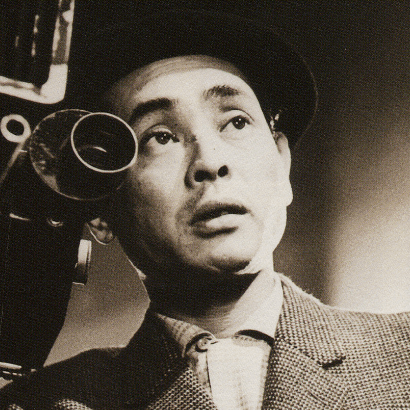
KINOSHITA Keisuke
وُلد عام 1912 في شيزوكا. في عام 1933، التحق كينوشيتا بالقسم الفني في شوتشيكو، وأثناء عمله كمساعد مصور، درس كتابة السيناريو.
في عام 1936، نُقل إلى قسم مساعدي المخرجين وعمل تحت إشراف ياسوجيرو شيمازو، حيث طور مهاراته في التصوير. كان فيلمه الأول الذي أُشيد به بوصفه مخرجًا جديدًا لامعًا هو "ميناء الزهور" (1943). في سنوات ما بعد الحرب، غالبًا ما كان يُصنف ضمن أفضل المخرجين في اليابان، حيث قورن بأساتذة آخرين مثل أكيرا كوروساوا وياسوجيرو أوزو، حيث أخرج أفلامًا ثورية ناجحة مثل "أربعة وعشرون عينًا"(1954) و"أغنية ناراياما"(1958) و"الحب الخالد"(1961).
بدأ بإنتاج العديد من الأعمال الدرامية التلفزيونية إلى جانب الأفلام أيضًا حتى وفاته عام 1998.
၁၉၁၂ ခုနှစ်တွင် ရှိဇုအိုက၌ ဖွားမြင်သည်။ ၁၉၃၃ ခုနှစ်တွင် ခိနိုရှိတသည် ရှိချိခု ရုပ်ရှင်ထုတ်လုပ်ရေး၏ နည်းပညာဌာနသို့ ဝင်ရောက်ခဲ့သည်။ လက်ထောက်ကင်မရာသမားအဖြစ် လုပ်ကိုင်ရင်း ဇာတ်ညွှန်းပညာရပ်ကိုလည်း လေ့လာခဲ့သည်။ ၁၉၃၆ ခုနှစ်တွင် လက်ထောက်ဒါရိုက်တာဌာနရှိ ယဆုဂျိရို ရှိမဇု လက်အောင်တွင် ရွှေ့ပြောင်းလုပ်ကိုင်စေခဲ့ရာ ရုပ်ရှင်ရိုက်သည့် အတတ်ပညာကို တတ်ကျွမ်းလာခဲ့သည်။ အရည်အချင်းရှိသော ဒါရိုက်တာတစ်ဦးအဖြစ် အသိအမှတ်ပြုကြသည့် ပထမဆုံး ရုပ်ရှင်မှာ “Port of Flowers” (၁၉၄၃)ဖြစ်သည်။ စစ်ပြီးခေတ် ဂျပန်နိုင်ငံ၏ ထိပ်တန်းဝင် ဒါရိုက်တာတစ်ဦးအဖြစ် အသိအမှတ် ပြုခဲ့ကြပြီး ရုပ်ရှင်ဒါရိုက်တာ ဆရာတစ်ဆူဖြစ်သည့် အကိရာ ခုရိုဆာဝါနှင့် ယဆုဂျိရို အိုဇုတို့နှင့် ခိုင်းနှိုင်း သတ်မှတ်ခဲ့ကြသည်။ “Twenty-Four Eyes”(၁၉၅၄)၊ “The Ballad of Narayama”(၁၉၅၈)နှင့် “Immortal Love”(၁၉၆၁)စသည့် ဂျပန်ရုပ်ရှင်လောကကို ပြောင်းလဲစေခဲ့သည့် ဇာတ်ကားများစွာကို တင်ဆက်ခဲ့သည်။
၁၉၈၈ ခုနှစ် မကွယ်လွန်ခင်အချိန်အထိ ရုပ်သံဒရာမာများနှင့်အတူ ရုပ်ရှင်များစွာကို ဖန်တီးခဲ့သည်။
1912年生於靜岡。1933年,入職松竹膠片顯影部。一面擔任攝影助理,一面學習寫劇本。1936年,作為副導演在島津保次郎導演手下精進了攝影技術。1943年,導演了《熱鬧的碼頭》,作為新銳導演大受好評。戰後成為了與黑澤明、小津安二郎等其他巨匠相匹敵的日本頂級導演。1954年的《二十四只眼睛》、1958年的《楢山節考》、1961年的《永遠的人》等,導演了諸多革命性話題佳作。直到1998年過世前,木下先生依舊堅持在電影與電視劇的製作一線上。
Born in 1912 in Shizuoka. In 1933 Kinoshita entered the technical department of Shochiku. While working as an assistant cameraman, he studied script writing.
In 1936, he was transferred to the assistant directors’ department and worked under Yasujiro Shimazu, where he improved his shooting skills. His first film for which he was hailed as a brilliant new director was "Port of Flowers"(1943). In the post-war years, he was often listed among the top directors in Japan, being compared to other masters such as Akira Kurosawa and Yasujiro Ozu, directing revolutionary hit films such as "Twenty-Four Eyes"(1954), "The Ballad of Narayama"(1958), and "Immortal Love"(1961).
He started creating many TV dramas along with films as well until his death in 1998.
Geboren 1912 in Shizuoka. Im Jahr 1933 trat Kinoshita in die technische Abteilung von Shochiku ein. Während er als Kameraassistent arbeitete, lernte er Drehbücher zu schreiben.
1936 wurde er in die Abteilung der Regieassistenten versetzt und arbeitete unter SHIMAZU Yasujiro, wo er seine Filmdrehkünste verbessern konnte. Sein erster Film, für den er als brillanter neuer Regisseur gefeiert wurde, war „Port of Flowers“ (1943). In den Nachkriegsjahren wurde er oft zu den besten Regisseuren Japans gezählt und mit Meistern wie KUROSAWA Akira und OZU Yasujiro verglichen. Er führte Regie bei revolutionären Filmen wie „Twenty-Four Eyes“ (1954), „The Ballad of Narayama“ (1958) und „Immortal Love“ (1961).
Bis zu seinem Tod im Jahr 1998 schuf er neben Filmen auch zahlreiche Fernsehdramen.
1912-ben született Sizuokában. 1933-ban Kinosita belépett a Shochiku műszaki osztályára. Miközben segédoperatőrként dolgozott, forgatókönyvírást tanult.
1936-ban áthelyezték a rendezőasszisztensi részlegre, és Simazu Jasudzsiró mellett dolgozott, ahol továbbfejlesztette forgatási készségeit. Első filmje, amelyért zseniális új rendezőként üdvözölték, a Virágok kikötője (1943) volt. A háború utáni években gyakran sorolták Japán legjobb rendezői közé, és olyan mesterekhez hasonlították, mint Kuroszava Akira és Ózu Jaszudzsiró. Olyan forradalmi sikerfilmeket rendezett, mint a "Huszonnégy szem" (1954), "Narayama balladája" (1958) és a "Halhatatlan szerelem" (1961).
A filmek mellett számos tévéjátékot is készített, egészen 1998-ban bekövetkezett haláláig.
Lahir pada tahun 1912 di Shizuoka. Pada tahun 1933, KINOSHITA bergabung di departemen teknis Shochiku. Sewaktu bekerja sebagai asisten kameramen, ia belajar menulis naskah.
Pada tahun 1936, ia dipindahkan ke departemen asisten sutradara dan bekerja di bawah SHIMAZU Yasujiro, yang membuat keterampilan pengambilan gambarnya meningkat.
Melalui film pertamanya Port of Flowers (1943), ia dipuji sebagai sutradara baru yang brilian. Pada tahun-tahun setelah perang, ia sering terdaftar di antara sutradara terbaik di Jepang, bersama dengan sutradara lain seperti KUROSAWA Akira dan OZU Yasujiro, dan menyutradarai film-film revolusioner terkenal seperti TWENTY-FOUR EYES (1954), The Ballad of Narayama (1958), dan Immortal Love (1961).
Ia mulai membuat banyak drama TV dan film hingga tutup usia pada tahun 1998.
Nato nel 1912 a Shizuoka. Nel 1933 Kinoshita entra nel dipartimento tecnico della Shochiku. Mentre lavora come assistente operatore, studia sceneggiatura. Nel 1936 viene trasferito nel reparto degli assistenti alla regia e lavora sotto la guida di Yasujiro Shimazu, migliorando le sue capacità di ripresa. Il suo primo film, per il quale viene acclamato come un nuovo brillante regista, è "Port of Flowers" (1943). Nel dopoguerra è stato spesso annoverato tra i migliori registi giapponesi, paragonato ad altri maestri come Akira Kurosawa e Yasujiro Ozu, dirigendo film rivoluzionari come "Ventiquattro occhi" (1954), "La ballata di Narayama" (1958) e "Amore immortale" (1961). Ha continuato a realizzare un gran numero di drammi televisivi e film fino alla morte, avvenuta nel 1998.
Dilahirkan pada tahun 1912 di Shizuoka. Pada tahun 1933, Kinoshita telah menyertai jabatan teknikal di Shochiku. Ketika bekerja sebagai pembantu jurukamera, beliau mempelajari ilmu penulisan skrip. Pada tahun 1936, beliau ditugaskan di jabatan pembantu pengarah dan bekerja di bawah seliaan Yasujiro Shimazu, yang mana membolehkan beliau untuk memperbaik kemahiran dalam penggambaran. Filem pertamanya, yang menyebabkan beliau digelar sebagai pengarah tunas genius, adalah "Port of Flowers" (1943). Di tahun-tahun selepas perang, beliau kerap disenaraikan sebagai antara pengarah yang terhebat di Jepun, malah dibandingkan dengan pengarah-pengarah hebat yang lain seperti Akira Kurosawa dan Yasujiro Ozu, melalui pengarahannya dalam filem-filem yang hebat dan revolusioner seperti "Twenty-Four Eyes"(1954), "The Ballad of Narayama"(1958), dan "Immortal Love"(1961).
Beliau turut mencipta pelbagai drama TV serta filem sehinggalah menghembuskan nafas terakhir pada tahun 1998.
Nasceu em 1912, em Shizuoka. Em 1933, Kinoshita ingressou no departamento técnico da Shochiku. Enquanto trabalhava como cinegrafista assistente, estudava roteiro.
Em 1936, foi transferido ao departamento do assistente de direção, e trabalhou para Yasujiro Shimazu, onde aperfeiçoou suas habilidades como cinegrafista. Seu primeiro filme, pelo qual ele foi elogiado como um genial novo diretor, foi "Port of Flowers" (1943). Nos anos pós-guerra, foi mencionado muitas vezes entre os melhores diretores do Japão, sendo comparado a mestres como Akira Kurosawa e Yasujiro Ozu, dirigindo filmes revolucionários de sucesso, como "As 24 Pupilas" (1954), "A Balada de Narayama" (1958) e "O Inesquecível" (1961).
Além de filmes, ele criou muitos dramas televisivos, até sua morte em 1998.
Nacido en 1912 en Shizuoka. En 1933 Kinoshita ingresó al departamento técnico de Shochiku. Mientras trabajaba como asistente de cámara, estudió escritura de guiones.
En 1936, fue transferido a ser asistente de dirección y trabajó con Yasujiro Shimazu, donde mejoró sus habilidades de rodaje. Su primera película, por la que fue aclamado como un brillante director nuevo, fue "Port of flowers" (1943). En los años de la posguerra, a menudo figuraba entre los mejores directores de Japón, comparándose con otros maestros como Akira Kurosawa y Yasujiro Ozu, dirigiendo películas de éxito revolucionarias como "Veinticuatro ojos" (1954), "La balada de Narayama"(1958) y "Amor inmortal"(1961).
Comenzó a crear muchos dramas televisivos y películas hasta su muerte en 1998.
คิโนชิตะ เกิดในปีค.ศ. 1912 ที่เมืองชิซุโอกะ และได้เข้าทำงานกับฝ่ายเทคนิคของ โชจิขุ ในปีค.ศ. 1933 ซึ่งในขณะที่กำลังทำงานเป็นผู้ช่วยช่างถ่ายภาพอยู่ เขาก็เรียนเขียนบทควบคู่ไปด้วย ในปีค.ศ. 1963 เขาเปลี่ยนไปอยู่ในตำแหน่งผู้ช่วยผู้กำกับภายใต้การดูแลของ ชิมาซุ ยาสุจิโร่ ทำให้เขาได้เรียนรู้ทักษะการถ่ายภาพเพิ่มขึ้น โดยงานภาพยนตร์เรื่องแรกที่ทำให้เขาได้รับการยกย่องให้เป็นผู้กำกับหน้าใหม่มากความสามารถ คือเรื่อง "Port of Flowers" (1943) ในช่วงปีหลังสงคราม เขาได้รับการจัดอันดับว่าเป็นผู้กำกับอันดับต้น ๆ ของประเทศญี่ปุ่น ที่เทียบเทียมกับผู้กำกับชื่อดังในวงการอย่าง คุโรซาวะ อะกิระ และ โอซุ ยาสุจิโร่ โดยได้กำกับภาพยนตร์ที่ปฎิวัติวงการอย่างเรื่อง "Twenty-Four Eyes" (1954), "The Ballad of Narayama" (1958), และ "Immortal Love" (1961). เขาได้เริ่มสร้างละครทีวีไปพร้อมภาพยนตร์มากมาย จนเสียชีวิตลงในปีค.ศ. 1988
Sinh năm 1912 tại Shizuoka. Năm 1933 Kinoshita vào bộ phận kỹ thuật của Shochiku. Vừa làm trợ lý quay phim, ông vừa học viết kịch bản.
Năm 1936, ông được chuyển sang bộ phận trợ lý giám đốc và làm việc dưới sự chỉ đạo của Yasujiro Shimazu, nơi ông đã cải thiện kỹ năng quay phim của mình. Bộ phim đầu tiên mà ông được ca ngợi là đạo diễn mới xuất sắc là "Port of Flowers" (1943). Trong những năm sau chiến tranh, ông thường được xếp vào danh sách những đạo diễn hàng đầu Nhật Bản, được so sánh với những bậc thầy khác như Akira Kurosawa và Yasujiro Ozu, đạo diễn những bộ phim đình đám mang tính cách mạng như "Twenty-Four Eyes" (1954), "The Ballad của Narayama”(1958), và “Immortal Love”(1961).
Ông bắt đầu sản xuất nhiều bộ phim truyền hình cũng như điện ảnh cho đến khi qua đời vào năm 1998.
67 Comments
-
-
How can I see the film?
-
Dear Jitu,
Thank you for your interest in Japanese Film Festival Online 2024.
Unfortunately, films had been available until June 19th noon (JST). We appreciate for your understanding. Please enjoy TV dramas. -
Hello I am interested to watch.
-
Moving and useful for understanding the way of life of that period
-
good
-
First I’d like to thank JFF for showing this wonderful classic. ほんとうに こころから ありがとうございました.
The movie is really heart touching. It gives us a glimpse of many things like:
1) How teachers were back then, how students grew found of their teachers. The bond which was seen back then is unfortunately seen rarely these days.
2) Shows us how war affects people…
Listening to ” Aogeba Toutoshi” makes one emotional. Only wish there were subtitles for all the songs. It would give a deeper perspective of the relationship between the teacher and her students. I am sure they are wonderful and heart touching.
Thank you team JFF once again for this evergreen movie.
-
Excelente película, la impotencia de no poder cambiar el futuro desolador.
-
Majestic film in black and white with resounding music and songs.
Awesome vistas of land, sea and sky.
A humble and heart-rending depiction of some people in a small rural village.
It crosses generations being affected by changing culture.
The central character comes alone as an outsider, but in the following decades impresses profound respect, wisdom and love amid universal sufferings. -
Interesting to watch a movie filmed in 1950s! This was one of the oldest movies I have watched. Good to see how life was like back in the 1920s- 40s, to see how classroom teaching was like so long ago. The students were mainly from poor family so what happened to some of them were sad but hard truths to poorer people back then. The teacher disagreed on wars too but this was a sensitive topic which couldn’t elaborate too much in the movie.
-
The children are so cute! Their “long march” is so touching!
-
This movie is very touching. Thank for beautiful moments. I hope I could find all of songs from the movie.
-
Las películas de estos años son tan hermosas, con un ritmo completamente distinto, con el ánimo de contar una historia original y no por vender.
Cada que me acerco a un contenido sobre Japón, me da una cara nueva como si fueran mil países dentro de uno solo. Lleno de belleza y aprendizaje.
Gracias por este festival, lo he disfrutado enormemente. -
Que filme comovente! Belíssimo! Tocou profundamente meu coração! Eu chorei em muitas sequências junto com a professora e sua turma de 12 crianças que se tornaram jovens e adultas. A última sequência em que a professora se reúne novamente com seus alunos já adultos e ganha uma bicicleta é linda demais! Chorei bastante com este filme. Eu sou professora também. Gratidão por disponibilizá-lo no festival. Um dos melhores películas do cinema clássico japonês, sem sombra de dúvida.
-
Una película memorable, con el aura y esencia de lo que significa ser un clásico. Desde un principio logras conectar con cada uno de los personajes, y mientras avanza, tienes la sensación de acompañarlos en cada una de sus decisiones y caminos que toman.
La empatía y familiarización con los personajes surge del identificarse con la situación por la que están pasando. En donde compañeros de escuela, amigos, y hasta familiares, se apartan de nosotros por distintas circunstancias.
¡Muchas gracias!
-
Dopo tanti anni ho la fortuna grazie a JFF 2024 di rivedere questo capolavoro cinematografico. Al centro la donna e la sua importanza sia sociale che educativa. Un film che oggi più di ieri è importante da riscoprire. Pochi cineasti hanno saputo dipingere con tanta grazia e cura un momento storico del loro paese, senza cadere nel banale o del già visto.
-
It’s been a long time since i finished read the book. But, when i watch this, the scene and the dialogue in the book flow like i read the books yesterday.
i love this version, even no colour, but the expression of the actor told me they no need colour.
I can’t forget the last scene, when Ooishi sensei meet her pupils after war. How i finally understand what sonki means with “i can see this picture clearly” -
Such a moving story. It was not easy for Japan to make an anti war movie in 1955.
-
to pl
following up on your request for songs, here are the two. maybe you can google translate the lyrics.
”Aogebatoutoshi”
this song is often sang during graduation ceremony for elementary and middle school.
https://www.uta-net.com/song/76761/“Nanatsunoko”
this song is played through public speakers in communities at 17:00, letting kids know it is time to go home.
https://www.uta-net.com/song/13888/ -
Beatiful and Heartwarming film. The main leads are great. You can feel their emotions. The sceneries are beautiful. Thankful for this experience. Thank JFF!
-
Excelente pelicula
-
Historia, brillante y conmovedora.
-
「瀬戸内海の小豆島を舞台に、一人の女性教師と彼女が教える12人の生徒たちの物語」
教育の重要性や人間の温かさ、戦争の悲惨さ等、様々なテーマが織り交ぜられている作品。
「二十四の瞳」という壺井栄による日本の小説は映画やテレビドラマとしても何度も映像化されていたが、1954年の木下惠介監督による映画版は本当に良かった。
こんな素晴らしい作品を無料で拝見できて、本当に国際交流基金に感謝しております。 -
Thật hay nếu có thể thêm cả phụ đề cho những bài hát
-
Một bộ phim hay và nhiều ý nghĩa.
-
such a good film.
wish that all songs are translated. They are very nice and I bet so meaningful.
Thankyou so much. -
Thank you JFF for bringing this excellent classic to watch. It is very much appreciated.
Hope you bring more classic films to JFF online in the future. -
thank you for showing twenty four eyes. classic cinema every department was powerful. very touchy. cinematically seascape and landscapes were shot well, which incorporates the characters of the story so beautifully, thank you again
-
Really enjoyed this classic.
What a sad story but beautiful story.
What beautiful 24 + 2 eyes! -
excelente película, tan emotiva y llena de detalles antes y después de la 2a guerra. muchas gracias por brindarnos la oportunidad de ver esta maravillosa película!
-
WOOW…… Excelente película que retrata la realidad de la sociedad.
Las dificultades de la vida y el camino que cada individuo tiene que recorrer.
El arduo labor de una profesora que intentaba hacer ver su perspectiva y valor por la vida. -
I can relate to this story for I am a high school teacher too. Got the chance to teach the child of my former student or siblings, that is getting older but wiser i guess. Also, the way jow compassionate the teacher to her students and teaching them the reality of life and society. I really love the song of farewell to their teachers, got me teary eyed. Thank you director, screenplay, casts and production for this wonderful film. Congratulations!
-
Heartbreaking movie. “I cry for the dead, I cried a lot. I don’t cry because we gave up.”
The gaze of a woman teacher free from judgments, ideologies or jealousies.
Respect, security, protection of the weak. Thank you so much for giving this jewel to viewers around the world who too often judge before knowing. The photography, editing and soundtrack are also beautiful. I would like to know the titles of the songs -
The movie is an emotional and touching story about a Japanese teacher and her student life before and after the war.
Unfornately, I don’t know how meaningful of many songs are: only one song has translated lyrics. In my opinion, the songs play a significant role in this story. It would be helpful to international audiences if all songs have translated lyrics. Nonetheless, I appreciate the dialogue translation; I switch between two languages in the subtitles, and both translations are very good.Thank you very much for the opportunity to watch this classic movie with subtitles provided.
-
Khát vọng hòa bình được thể hiện một cách trọn vẹn qua mong ước của cô giáo. Cô mong những học trò của mình được sống vui khỏe, hạnh phúc. Tình cảm cô trò trong phim thật nồng ấm và gần gũi.
-
Such a nice ,classic film. If possible want to know the meaning of many songs in the film.
Thank you very much from Thailand -
Estupenda y conmovedora.
Nos permite ver la transición entre el Japón patriótico antes de la segunda guerra mundial y la versión posterior, no por ello menos patriótica, pero sí llena de amor y respeto a la vida de una profesora incomprendida para su época. Seguramente el filme tenía la intención de olvidar ese fervoroso patriotismo beligerante con la finalidad de reconstruir una nación basada en los principios y valores fundamentales como el respeto irrestricto a la vida.
Maravillosa película.
Gracias por compartir.
-
bonita, conmovedora.
-
tengo 43 años y siempre tomo el celular mientras “veo” una pelicula. Y definitivamente veo cuanto tiempo dura antes de ver que trata. Esto se debe a mi falta de disciplina por el respeto al trabajo de otros. Solo que en esta historia, es imposible prestar atención a otra cosa. Trabajo impecable de como redactas una historia tan llena de melancolía, amor, ambición. Gracias de corazón por enseñarnos a ser fieles a nuestro testimonio y dejarnos guiar por el corazón.
-
Thank you JFF for giving me the opportunity to see this great classic of Japanese cinematography. A truly moving and touching film. ありがとうございました
-
Film che mi ha fortemente sorpresa dato il periodo in cui è stato girato e fortemente emozionato per le importanti tematica che affronta con pensiero limpido e cristallino sul ruolo della donna portatrice e difensore di vita e l’insegnamento che deve esser scevro da condizionamenti e ideologie, dal tema della guerra e la povertà che condiziona il futuro delle giovani vite. Bellissimo film. Ho visto più volte e lo trovo ogni volta meraviglioso. Grazie per questa opportunità di poter conoscere e apprezzare capolavori cinema Giapponese che scopro di grande bellezza e sensibilità. Grazie infinite
-
I recognized this movie by the book with the same title Twenty four eyes by Sakae Tsuboi. I was looking forward to watch the movie and I did. Thank You JFF for the wonderful collection. Next time I hope JFF can play the Saga no Gabai bachan movie, this movie inspired by book with the same title also.
-
Very touching.
Highly recommend -
Tôi rất xúc động đoạn lũ trẻ rủ nhau vượt đường xa đến thăm cô giáo ở tít bên kia của hòn đảo. Các em nhỏ rất hồn nhiên và dễ thương nên chúng không hình dung được quãng đường như thế nào nên đi tới mức đói meo và òa khóc nức nở. Tôi hơi tiếc vì cả Engsub lẫn Vietsub còn thiếu 1 số thoại và những bài hát trong phim không được dịch ra là một thiếu sót lớn. Mong phim sẽ được chiếu lại lần sau với một bản sub hoàn thiện hơn.
-
I’m really grateful for the chance to watch this beautiful movie again. When I was a child in the 90’s, I have seen this movie, which one of my favorite. As an adult I love it even more. A very touching film how war destroys families and what is important in our life.
-
A poignant, rich tapestry of simple lives and emotions rendered intricately in song and story, all in the splendour of black and white. It felt great to see the good old school teacher back on her bicycle. That’s how life should be taken. Arigato!
-
Super great movie, Japan is the Nation that is rich in Culture,Traditions, and People’s strong mind. Besides it show us the bond between teacher and students which’ve rarely been seen today. And show us how War destroy human life. Thank you for letting us has chance to see this movie.
-
This is a classic in every sense of the word. From the moving storyline, the virtuoso acting to the magnificent cinematography. An absolute showcase of the Golden Age of Japanese cinema. What a pleasure to watch.
-
Tras el azote de los duros tiempos y pérdidas personales, el aula llena con los niños de la siguiente generación y el reencuentro ya adultos de los que quedan de aquel primer curso crea un positivo final muestra sin duda de gran resiliencia.
-
Es una hermosa historia sobre el valor de la educación, los vínculos humanos y la paz.
Buen cine repleto de reflexiones necesarias para el mundo actual. -
Twenty-Four Eyes is a masterpiece of classic black-and-white cinema, artfully weaving together heartwarming and heartbreaking moments. The actors performances are exceptional, particularly the tender & profound relationship between the teacher and her students.
-
What a beautiful movie.
-
Excellent!!
-
inilah hidup,
-
I cryed a lot! Really powerfull film, very good actors and the message has a big impact.
-
Mais um belíssimo filme de Kinoshita Keisuke, do antológico Balada de Narayama. O que é imperdoável, no entanto, é que um filme com tantas e tantas canções, que parecem adoráveis, só tem uma (patriótica) com legenda.
No Brasil, excetuando musicais, parece ser crime botar legenda em letras de canções, mesmo indispensáveis (é por isso que estão ali) à compreensão da trama.
É uma pena que não fale japonês, pois adoraria saber o que as crianças e jovens cantam por quase toda a película! -
Beautiful movie <3
-
The film is really, really emotional from the 1st act to the 2nd act of the movie is full of beauty in each scene it shows. Even if it’s a black and white film you can really see the emotion of each character, that’s why this film is a 10/10 to me.
-
The film really touched my heart. I felt so emotional after watching it and wanted to cry out loud. The war is so cruel that it affects the life of everyone regardless of age, gender, and social status. We see the journey of Mrs. Oishi as a teacher, from her first classes with her first students to getting married, having children, and experiencing the passing of some of her dear ones. We see her students from the first grade all the way to some of them having to drop out of high school due to family hardships, because of the war, and so on. As a teacher myself, I truly admire Mrs. Oishi and her long-lasting connections with her students. She is the kind of teacher that all students love, and her ability to empathize and enlighten her students is something that we all aspire to.
-
Excelente película, conmovedora nos lleva a nuestra infancia a la primera maestra, y todo dentro de un contexto antibelicista y antimilitarista y feminista. Aplaudo al director y al festival por exhibir tanta belleza.
-
I’m really happy to have been finally able to watch this Classic. It’s a very beautiful and honest film and all the actors are just amazing. It’s message is nowadays as relevant and necessary as it has been then.
-
Muy conmovedora, gracias por dejarnos ver este clásico.
-
Una película conmovedora, ambientada durante una guerra que nunca vemos, pero cuya presencia se deja de manifiesto en estas vidas que acompañamos a través de la mirada de su profesora.
-
i like jp movie
-
Thank you very for this Classic
-
TAKAMINE Hideko shinning inin these clasic
film -
A classic film that I have waited sixty years to see. Thank you, JFF.
- SHOW MORE COMMENTS


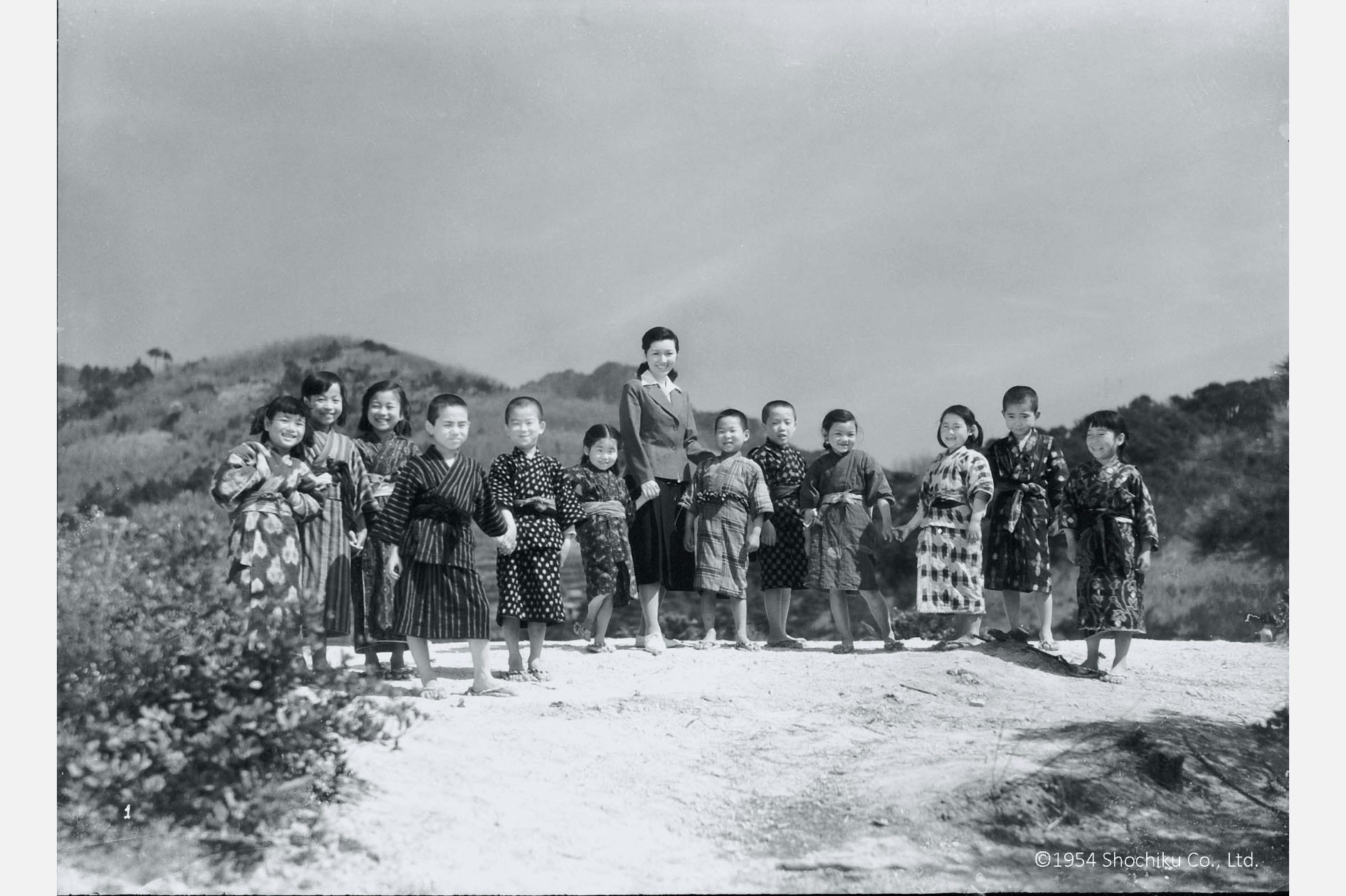
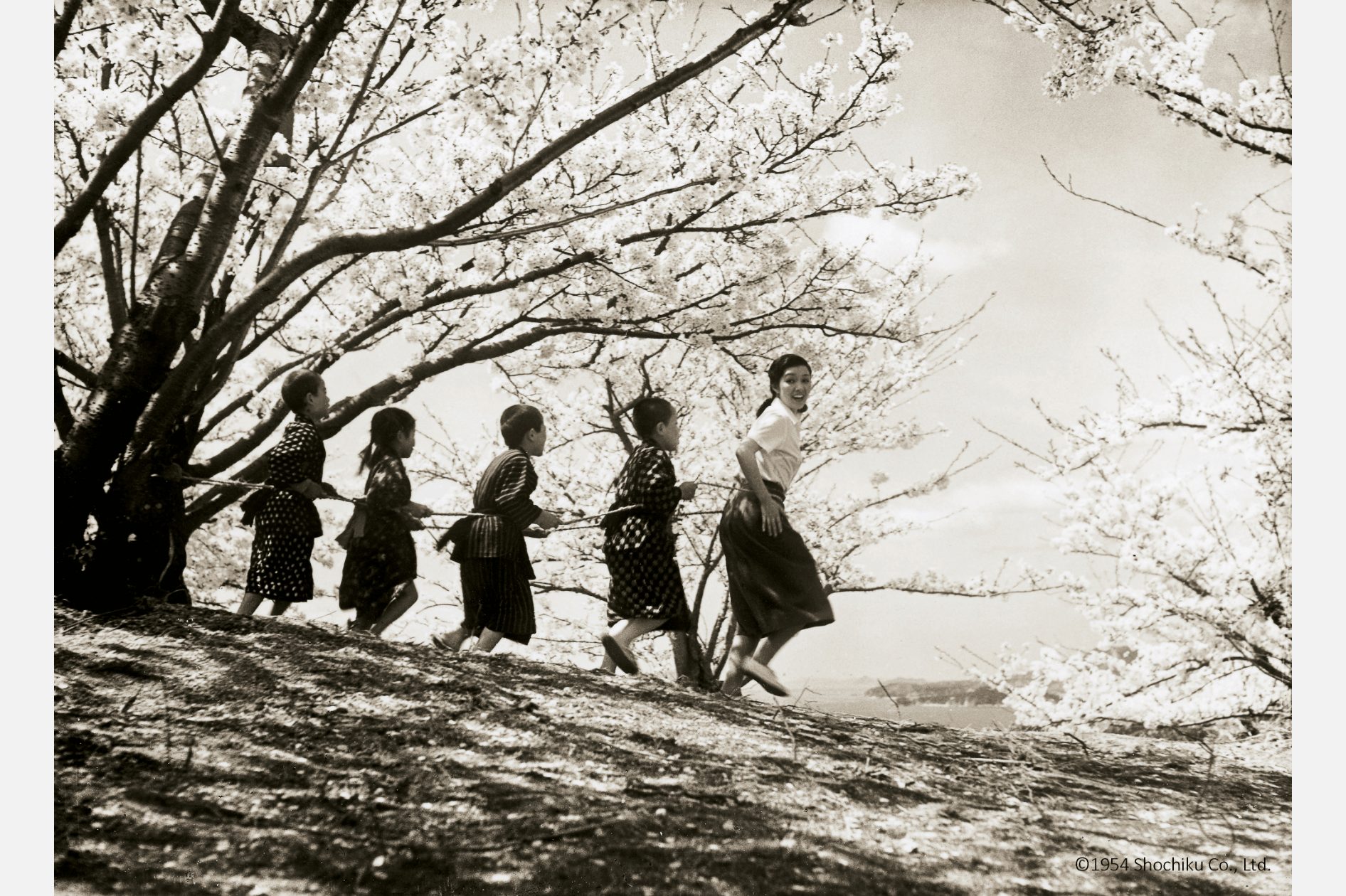
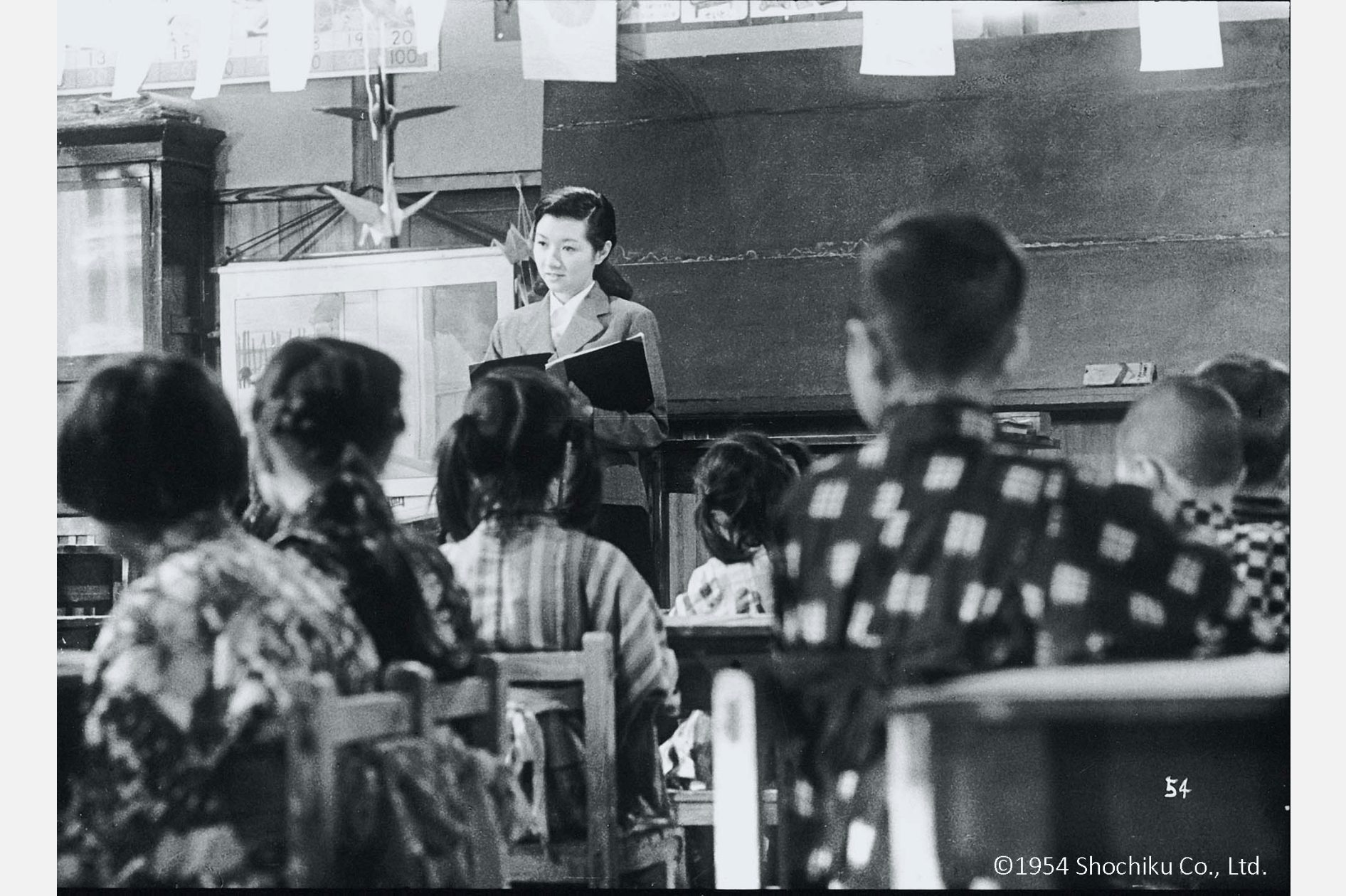
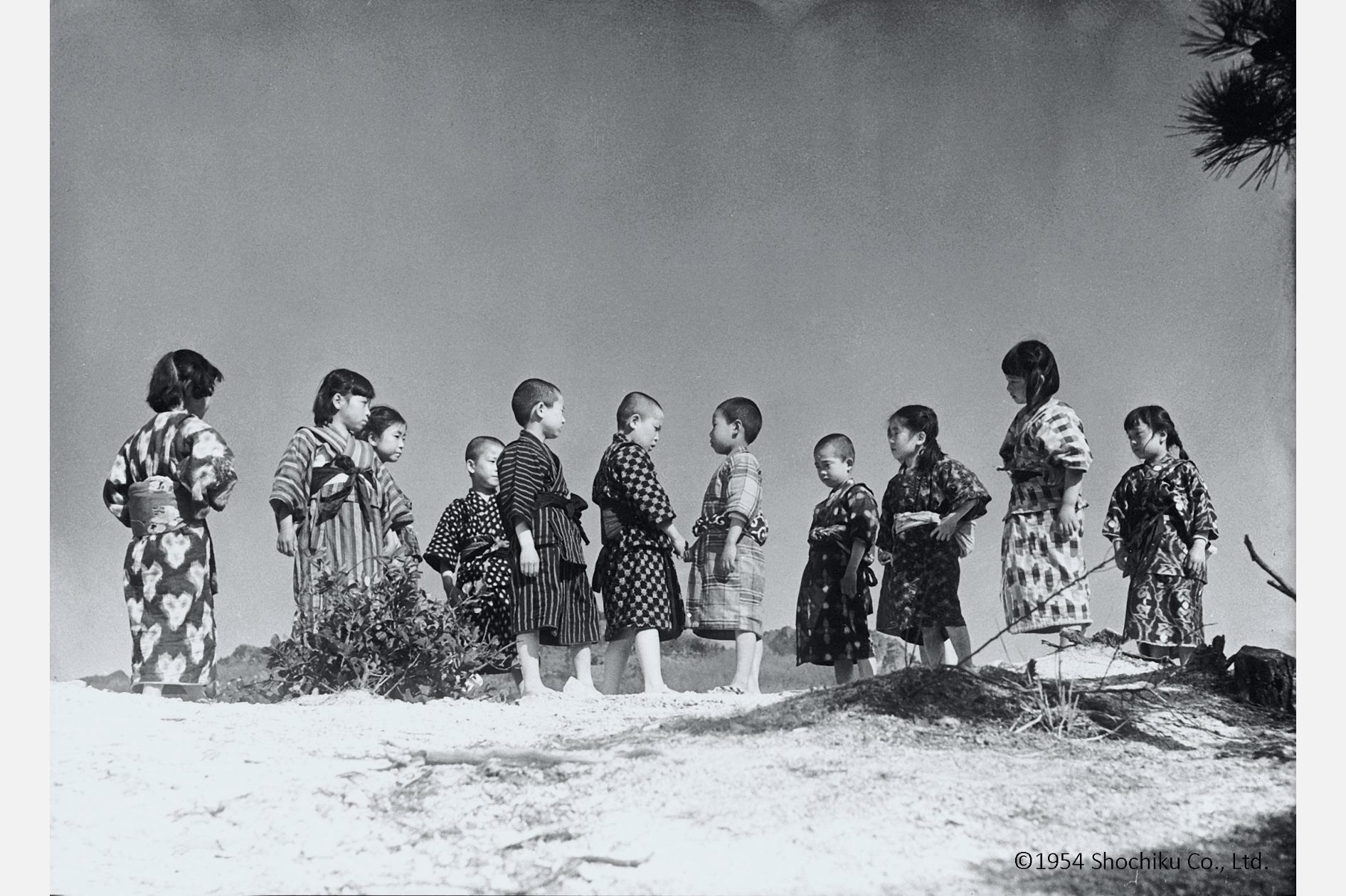
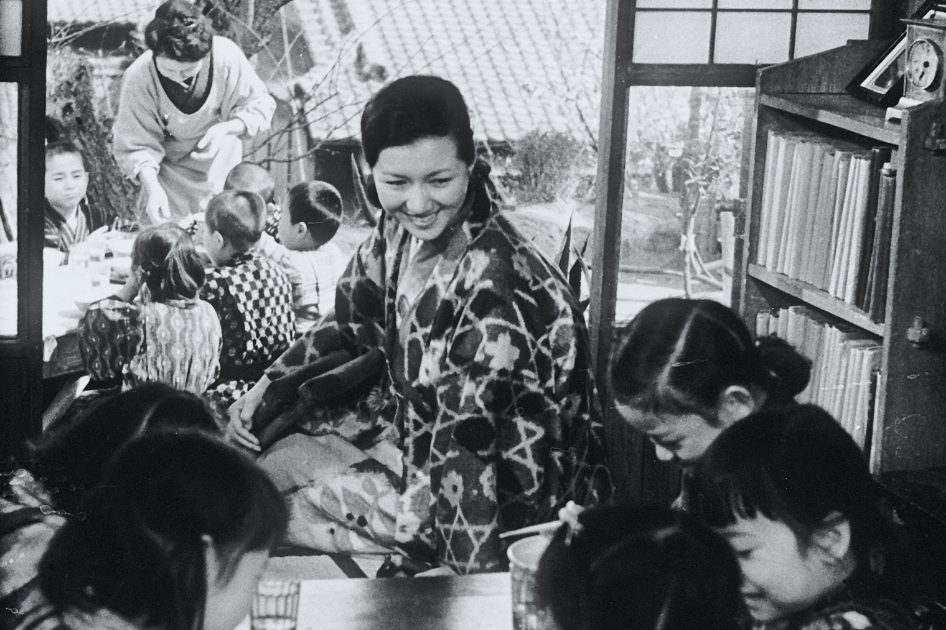

Dear Joe,
Thank you for your interest in Japanese Film Festival Online 2024.
Films have been available only until June 19th noon (JST). We appreciate for your understanding.
Please enjoy TV dramas which are available until July 3 5:00, 2024 (CET).
https://www.jff.jpf.go.jp/watch/jffonline2024/hungary/